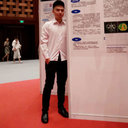[Application of the supine position in microsurgery for lesions of the cerebellopontine angle].
Keywords
Abstract
Objective: To validate the usefulness of the supine position in microsurgery for lesions of the cerebellopontine angle (CPA) by the retrosigmoid approach. Methods: Thirty-nine patients with lesions (22 cases of tumor, 11 cases of trigeminal neuralgia and 6 cases of hemifacial spasm) of the CPA underwent tumor resection surgery or microvascular decompression surgery (MVDS). The patients were operated on in the supine position by retrosigmoid approach with the head turned 50 to 60 degrees away from the lesion and with slight forward flexion of the neck. Results: In the supine position, the surgery spent less time in the preoperative preparation period, and had minimal cerebellar retraction, with no resection of the cerebellum. There was no pressure sore and the brachial plexus injury in these patients. Gross total resection was achieved in 18 of patients, and subtotal resection happened in 4 patients. The vascular structures were separated from the trigeminal nerve or the facial nerve in microvascular decompression and thus the preoperative symptoms alleviated. Conclusions: In the supine position, the retrosigmoid approach alleviates cerebellar retraction, increases the exposure and gives better access to the CPA lesions. The associated postoperative complications are negligible. The method is more suitable for elder, debilitated or obese patients.




